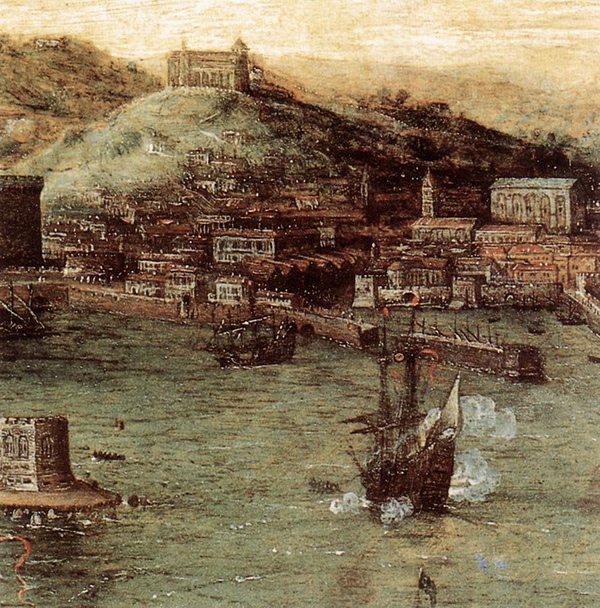
We should keep in mind that a proposed course of action may in itself be lawful, but the actor contemplating it should weigh first all the circumstances. He might conclude that it is unlawful, that it is vicious and bad. This is what the Apostle Paul means when he says, Rom. xiv. 23, that “whatsoever is not of faith is sin.” In this passage he uses “faith” to mean the judgment which a man forms about a thing; for God has given us the faculty of discernment, called conscience, conforming to whose dictates we are commanded to reconcile our dealings, and whenever we neglect or forbear its requirements, our minds degenerate and become not as men but animals.
Moreover, it often transpires that judgment affords no certainty, but hangs in suspense and doubt, and we must be mindful to avoid dire action in such circumstances. Cicero’s direction gives us comfort in which he forbids us to do any act of violence, whilst we are in doubt whether we shall do well or ill. Likewise the rabbinical tradition give us this caution: forbear what is doubtful. This wise advice is frustrated when a man is pressed to action while doubting of the lawfulness of the conduct contemplated; but in that case he must choose the less violent course, that which he thinks to be least unjust; for whenever we are compelled to choose, then the lesser evil puts on the form of good; of two evils we must take the least, says Aristotle; and Cicero advises the same; and Quintillian tells us, that if we compare evils together, the smallest holds the place of good.
—Hugo Grotius, De jure belli ac pacis, lib ii, cap xxiii, sec ii (1625)(S.H. transl.)
(view the original Latin text in the edition from 1625 here)
Seven years ago, the United States commenced its invasion of Iraq. The anniversary passed yesterday virtually without observation, though the Cato Institute should be commended for the panel discussion it arranged between moderator Grover Norquist and Congressmen Tom McClintock (R-CA), Dana Rohrabacher (R-CA) and John J. Duncan, Jr. (R-TN) which included this exchange:
rohrabacher: Well, now that we know that it cost a trillion dollars and all of these years and all of these lives and all of this blood, uh, I don’t know many…
norquist: Looking for a number. Two-thirds? One-third?
rohrabacher: I, I can’t. All I can say is the people, everybody I know thinks it was a mistake to go in now.
norquist: That’s 100 percent.
norquist: What percentage of Republicans in Congress, who would agree with the general analysis here that it was a mistake and/or we should go in.
mcclintock: I think everyone would agree Iraq was a mistake.
But does everyone in fact believe it was a mistake? The Beltway punditry believes, by and large, that no point is served in revisiting the decisions that were taken leading up to the war in Iraq–a war which the Beltway punditry largely sought and enabled through an aggressively false portrait of the facts and the options that the nation faced. If anything, seven years later, the hold of the war party on the essential outlets of opinion journalism is stronger than ever before. There has been no accountability for being wrong, being imprudent or being disingenuous. Indeed, those qualities appear actually to be rewarded.
But the time has come for America to do what Britain is now doing. I’ll call it a Grotian moment. Grotius was no pacifist, but rather a counselor to warrior-kings, persuaded that wars could be fought for just cause. But he also advocated the essential role of conscience in this process, and the need for prudence and hesitation before the dogs of war are unleashed. It is unseemly for a democracy which has waged a war in error, relying on falsehood and triggering thereby the death of thousands of innocents, to move on without a process of soul-searching which allows it to identify and challenge those whose false advice so poorly served the nation. Indeed, do they even recognize their past errors as they try to lead us into new ones?
In his forward to the Defense of the Lawful Government of Holland, Grotius cited an “old Dutch proverb”:
Al is de Leughen snel,
de Waarheydt achterhaaltse wel.
(Lies may move quickly,
But the truth inevitably catches up.)
The time has come for that catching up. A nation can make well-intended mistakes and having done so, it has no need to grovel or debase itself. But it does have a duty to conscience and to its citizens to pause and carefully survey its errors. The answer would be America’s own Chilcote inquiry.
Listen to William Byrd’s The Battell from My Lady Nevells Booke (1589) and Ave verum corpus (1605)


